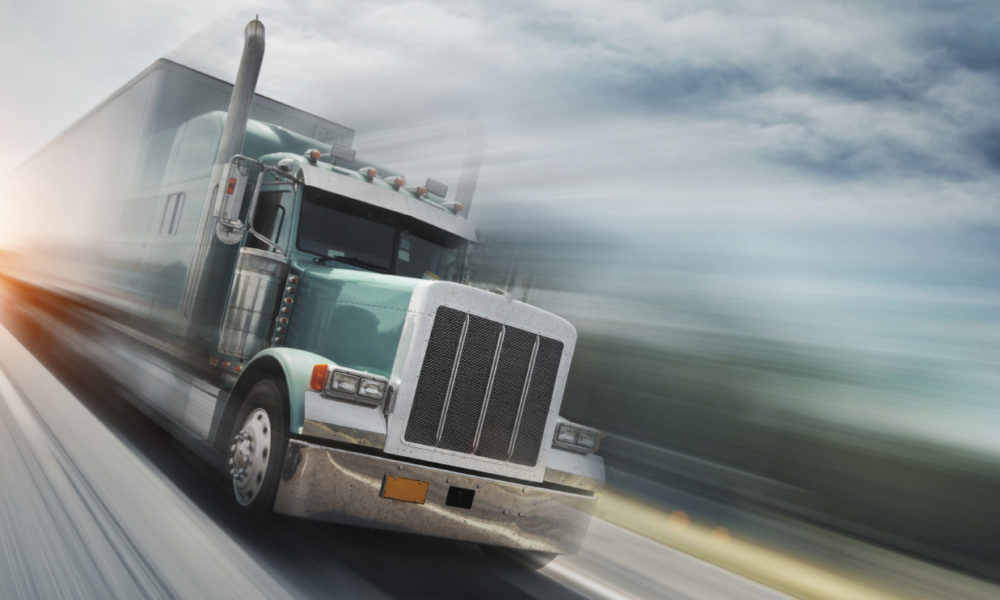
Driverless delivery vehicles will be the future of trucking, but what is the trucking industry doing to stay competitive during this disruptive transition?
The US trucking industry is currently valued at about $800 billion annually, but with the rise of autonomous or driverless delivery vehicles, those in the industry must learn to adapt or become irrelevant.
To find out how trucking companies are responding to this digital transformation, I reached out to Dmitri Fedorchenko, CEO of Doft, whose mission is to disrupt the trucking industry by providing an Uber-like service that connects suppliers directly with truckers in their area.
My concern was that this type of service has greatly benefited the trucking industry for the present, but how would Doft respond to the rise of driverless delivery vehicles question?
Fedorchenko's response was refreshing, and instead of trying to fight the coming wave of disruption, his company is in a unique position to greatly benefit from it while still remaining one of the industry's most influential thought leaders.
"I'm sure that we're not competitors with self-driving truck manufactures but partners," Fedorchenko explains, adding, "I am, as the CEO of Doft, highly convinced that Tesla, Otto and Nikola will become our partners in the future and will integrate Doft into their on-board navigation system; making their trucks not only autonomous but smart and profitable."
With nearly 1.7 million Americans working in the trucking industry, the switch to driverless delivery trucks has many concerned about massive job losses as the average truck driver relies on an average salary of $42,500, according to the Huffington Post.
However, Fedorchenko recognizes that driverless trucks will be efficient for long hauls, but for city-driving and actual door-to-door deliveries, there will still be human operators.
"Think of driverless trucks as robots following your orders," he says. "Of course there'll always be an operator (driver) somewhere around to help trucks maneuver in the city. On highways these robots will work as autopilots like in airplanes. Having said this, we understand that trucks are useless when they don't have jobs to do and freight to move. Doft targets owner operators and independent 'freelance' drivers who will need a marketplace where they can easily find loads for robots (self-driving trucks). Or one can even imagine that robots themselves can bid on some loads if they know they will be empty soon."
Whether jobs are lost or gained, those in the trucking industry know that deliveries and shipments will always be in demand, and it's just a matter of how well these companies can adapt to the changing times.
According to Supply Chain Digest, driverless delivery vehicles may not be the end of jobs after all, but rather provide more opportunities for employees to make local deliveries while diversifying their job roles to give better customer service and offer new sales positions while the autonomous vehicles perform the heavy lifting tasks.
For Doft, the CEO says, "Doft will turn smartphones and trucks into a working tool earning money to their owners at the same time making transportation process safe, reliable and efficient."
He went on to add, "We have already started negotiations with some companies which work in this space to find how Doft can be useful for this 21st century technology. Doft is solving real problems of small businesses and independent truckers. Every dollar spent on logistics is then added to the final price of the product."
FedEx is already reportedly investing in rolling robot couriers to deliver goods from the trucks to the customers' front doors and back to the trucks again, which goes to show how rapid this disruption is progressing.
Fedorchenko said that Doft will not deny this incoming wave of disruptive technology, but rather embrace it, and that big players will need to adapt their solutions to fit this market as well.
Author: TIM HINCHLIFFE @TimHinchliffe
Tim Hinchliffe is a veteran journalist whose passions include writing about how technology impacts society and Artificial Intelligence. He prefers writing in-depth, interesting features that people actually want to read. Previously, he worked as a reporter for the Ghanaian Chronicle in West Africa, and Colombia Reports in South America. tim@sociable.co
Source: The Sociable